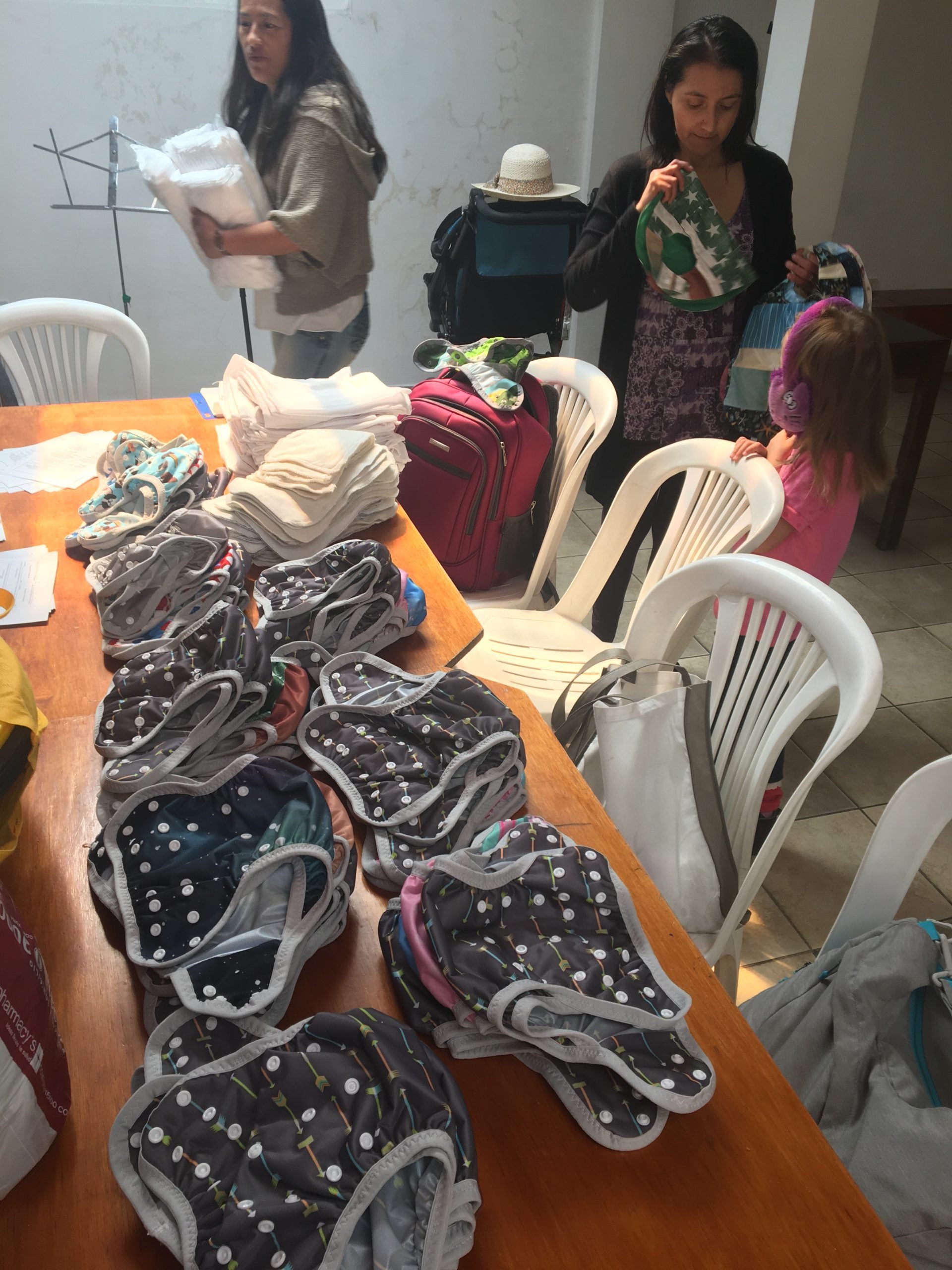32: Cloth Diapers for Refugee Project
Ecuador
A Climate Pollinator story by Sierra Ross Richer
The spare bedroom at Peter Wigginton and Delicia Brava’s home in Quito, Ecuador, has been transformed into a shop for making cloth diapers.
Delicia learned to sew reusable diapers when her eldest daughter, Aliya was born. Eight years later, she now makes them for refugee mothers.
Peter and Delicia are the Ecuador partnership coordinators for Mennonite Mission Network (MMN) in Quito, where they’ve lived for the last nine years. After their second daughter, Ariana, was born in 2017, someone at Quito Mennonite Church saw the cloth diapers Delicia used and suggested that Delicia make them for the refugees who are served by the church’s Refugee Project.
Since 2002, Quito Mennonite Church, with the help of funding from Mennonite Central Committee (MCC), has run a project to supply food and other resources for refugees arriving in the city from Colombia, Venezuela and elsewhere. Some of the refugees are mothers with babies.
“The refugee project, they were giving out to a mom 15 disposable diapers,” Peter said. “That lasts 3 days.”
Now mothers receive a kit with 12 reusable diapers, four waterproof covers, four cloth inserts, a bib and burp rags, all packaged in a bag made from a recycled T-shirt. They also receive a basin for washing the diapers.
For mothers with limited resources, reusable diapers are a huge money-saver. They are also better for the environment.
One baby can use up to 7,000 diapers before she is potty trained, one website estimates. That’s a lot of trash going into landfills, or filling streets and rivers.
Delicia and Peter are conscious about how much waste they produce. “We try not to buy things wrapped in plastic,” Delicia said, “but it’s so hard.”
In Ecuador, diapers, like many items, are often sold individually, each in its own plastic wrapper. Then there is the diaper itself: “You don’t even know what is inside, how many chemicals they put,” Delicia said.
Since 2017, Delicia–with the help of church members, refugees, volunteers and her husband–has made around 600 diapers kits.
With 36 snaps, the diapers are endlessly adjustable so “they grow with the baby,” Delicia said. And they are sturdy enough to be used by three or four babies.
When mothers visit the church to receive their diaper kits, they are taught how to use them, and about the environmental benefits of reusable diapers.
Delicia said: “We tell them, ‘you are being part of taking care of the environment for our kids’.”


